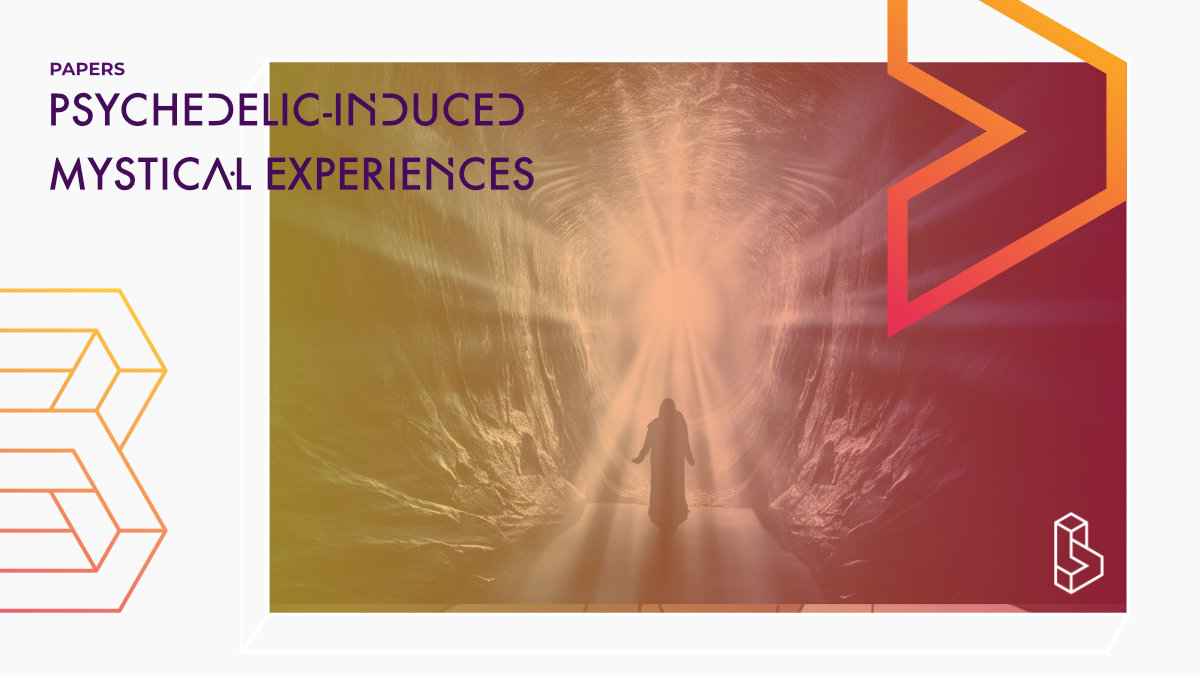This review (2023) discusses the limitations and biases in using psychometric assessments to measure “mystical” experiences in psychedelic research. The authors argue that the existing operationalizations of mystical experiences fail to acknowledge their Christian bias and suggest more culturally-sensitive approaches. They also propose complementary “non-mystical” approaches to understanding similar phenomena for more robust theoretical and empirical approaches.
Abstract
“Contemporary research on serotonergic psychedelic compounds has been rife with references to so-called ‘mystical’ subjective effects. Several psychometric assessments have been used to assess such effects, and clinical studies have found quantitative associations between ‘mystical experiences’ and positive mental health outcomes. The nascent study of psychedelic-induced mystical experiences, however, has only minimally intersected with relevant contemporary scholarship from disciplines within the social sciences and humanities, such as religious studies and anthropology. Viewed from the perspective of these disciplines—which feature rich historical and cultural literatures on mysticism, religion, and related topics—‘mysticism’ as used in psychedelic research is fraught with limitations and intrinsic biases that are seldom acknowledged. Most notably, existing operationalizations of mystical experiences in psychedelic science fail to historicize the concept and therefore fail to acknowledge its perennialist and specifically Christian bias. Here, we trace the historical genesis of the mystical in psychedelic research in order to illuminate such biases, and also offer suggestions toward more nuanced and culturally-sensitive operationalizations of this phenomenon. In addition, we argue for the value of, and outline, complementary ‘non-mystical’ approaches to understanding putative mystical-type phenomena that may help facilitate empirical investigation and create linkages to existing neuro-psychological constructs. It is our hope that the present paper helps build interdisciplinary bridges that motivate fruitful paths toward stronger theoretical and empirical approaches in the study of psychedelic-induced mystical experiences.”
Authors: Sharday Mosurinjohn, Leor Roseman & Manesh Girn
Summary of Psychedelic-induced mystical experiences
Psychedelics have re-emerged as compounds of scientific and clinical interest, with preliminary clinical trials indicating the potential for transdiagnostic efficacy spanning the treatment of depression, end-of-life distress, tobacco addiction, alcoholism, and obsessive-compulsive disorder.
The mystical experience is a phenomenon that has garnered much attention in contemporary psychedelic research. Although psychedelic scientists may believe themselves to be avoiding any theological, supernatural, or metaphysical positions, they often explicitly invoke religious or religion-related concepts in the same breath.
Find this paper
Psychedelic-induced mystical experiences: An interdisciplinary discussion and critique
https://doi.org/10.3389/fpsyt.2023.1077311
Open Access | Google Scholar | Backup | 🕊
Cite this paper (APA)
Mosurinjohn, S., Roseman, L., & Girn, M. Psychedelic-Induced Mystical Experiences: An Interdisciplinary Discussion and Critique. Frontiers in Psychiatry, 14, 523.
Study details
Authors
Authors associated with this publication with profiles on Blossom
Manesh GirnManesh Girn is a Neuroscience Ph.D. Candidate at McGill University and the Chief Research Officer at EntheoTech. His research involves applying multivariate and network-based analyses to functional neuroimaging data in order to examine relationships between the brain and cognition. My doctoral research is aimed at (i) characterizing the default mode network's role in cognition, and (ii) characterizing the brain mechanisms underlying serotonergic psychedelic drugs. He also creates videos on the latest topics in psychedelic science and under the alias 'The Psychedelic Scientist'.
Leor Roseman
Leor Roseman is a researcher at the Centre for Psychedelic Research, Imperial College London. His work focussed on psilocybin for depression, but is now related to peace-building through psychedelics.
Linked Research Papers
Notable research papers that build on or are influenced by this paper
Moving Past Mysticism in Psychedelic ScienceThis commentary (2021) examines the role of mystical frameworks within psychedelic research and identifies the problem of putting subjective experiences into a black box by labeling them as 'ineffable' and inaccessible to scientific inquiry. The authors recommend a theoretic shift away from supernatural or nonempirical belief systems in favor of a secular framework that aims to measure those experiences more objectively.

